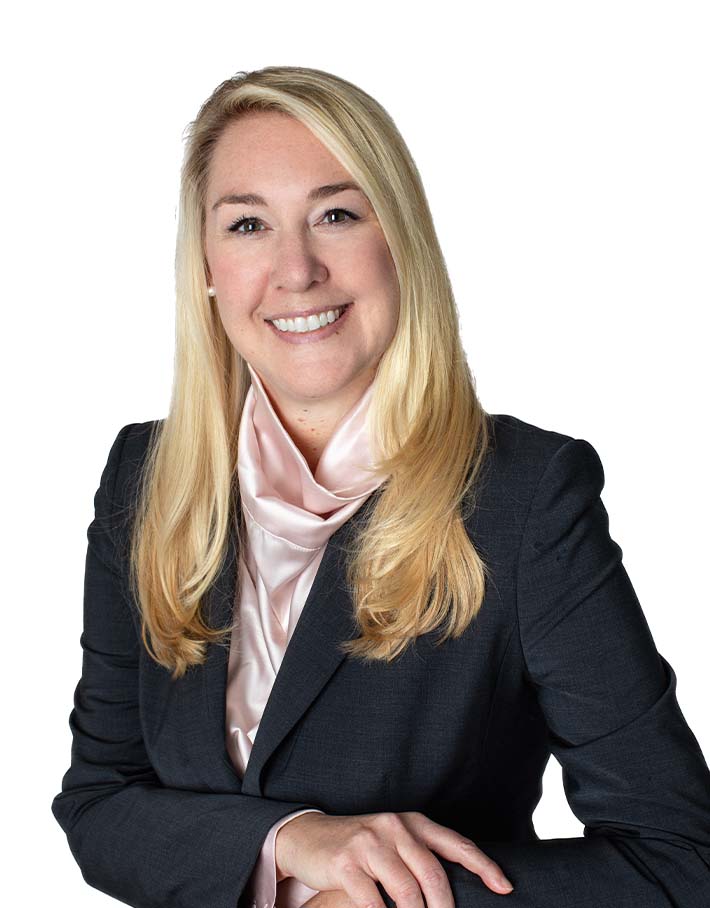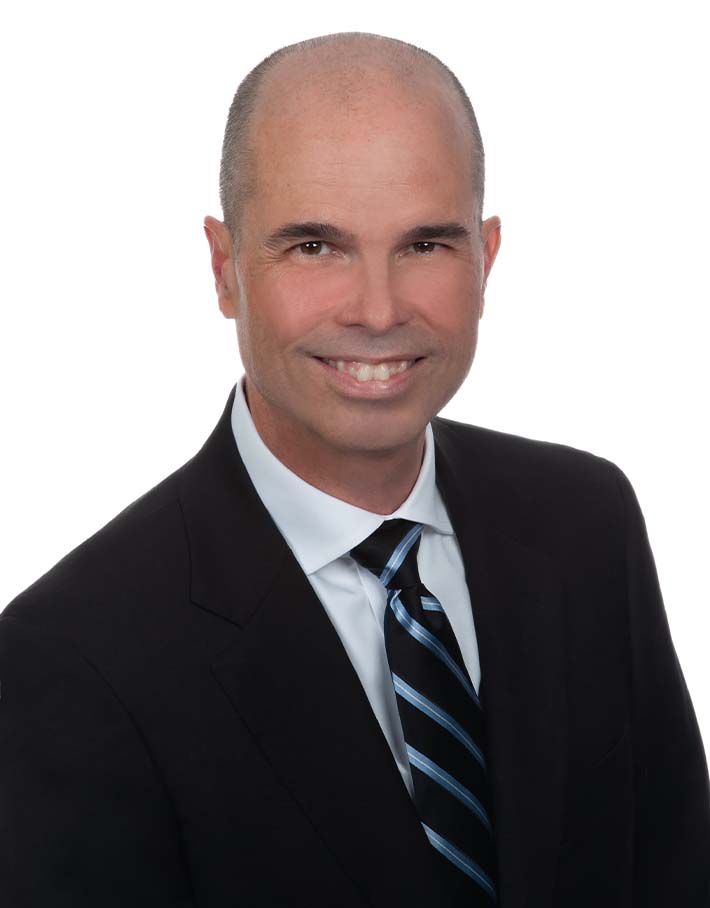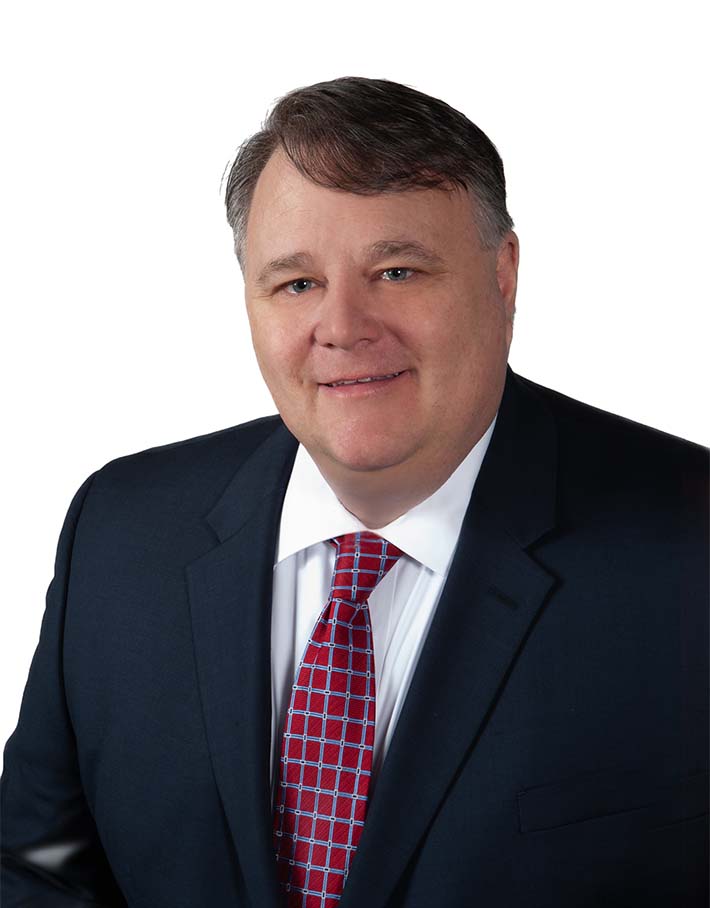You’ve Decided to Register Your IA – Now What?
By Buddy Doyle, Sarah Sutton and Jay Donlin
Subscribe to our original industry insights
Starting your own Investment Advisor (IA) is exciting, but some of the steps to get there can be challenging. In this Oyster Stew podcast, our experts discuss what motivates people to start their own IA, what’s involved from a high-level view, and talk about some things we’ve seen that work and don’t work.
Transcript
Transcript provided by Temi transcript services
Oyster: Hi, and welcome to today’s podcast. One of several, we will produce about starting your own Registered Investment Advisor or RIA. I’m Libby Hall, and with me are some of Oyster’s RIA experts, Buddy Doyle, Sarah Sutton, and Jay Donlin. Today, we are going to be discussing what motivates people to start their own RIA. We’ll look at what’s involved from a high-level view and talk about some things we’ve seen that work and some that don’t. Buddy, why don’t you take it from here?
Buddy Doyle: Hi everybody. I’m Buddy Doyle. I’m pleased to be joined today by Jay Donlin and Sarah Sutton, two of our experts on RIAs. They have helped a number of our clients move from where they were to where they’re going. And I think that, we’re pleased to have you here, Jay. Sarah. Welcome.
Jay Donlin: Thanks, Buddy.
Sarah Sutton: Thanks, Buddy. Good to be here.
Jay Donlin: One of the things that people always think is, hey, I want to go start my own RIA. That’s great, but there are several things you have to be aware of when you go do that. One is, do you want to run a business? Do you feel like you have the capacity to run your own business, make your own HR decisions, make your own real estate decisions, make your own tech stack decisions, custodial decisions? All these decisions that have to be made in order to an RIA. One of the things that we are finding in the marketplace is this explosion of FinTech. And there are hundreds upon hundreds of vendors out there that you have to go through and make a decision.
Buddy Doyle: There is a process you need to go through to start a business and having a business plan. And rarely do we ever see a business plan that fails in projection. But I think that it’s that thoughtful process of going through that. And, Jay, one of the things I know you guys do is you’re the objective voice of “Am I over optimistic? Am I too pessimistic about things?” And one of the things that we often hear from firms, particularly the ones that are losing the reps to go out and start their own RIA, is they’re chasing less regulation. I actually think it’s a different regulation, but I’m not sure it’s less. And Jay, I think, you know, you started out with a lot of these things and I think about investing in your platform and your tech stack and all those kinds of things, deciding what products you want to offer to your clients and how you want to serve them. You will be a fiduciary for your clients as an RIA and, depending on your capacity and what you work with them, that can mean slightly different things, but it’s still a very high bar for you to meet. But if you’re investing in all these plans, and you’re investing in all these platforms, you also need to invest in profitability. Jay, any thoughts on sort of the process of going through your financial projections and your wants and your needs?
Jay Donlin:
Yeah, Buddy. One of the things that we hear when people are exploring, starting their own RIA is, “Who am I going to choose as a custodian?” That’s an important question. But a lot of the custodians today, the top three especially, do a lot of the same stuff. And they’re very similar pricing. The more important question is ‘What FinTech am I going to use?’ – these portfolio management systems and various client reporting systems that are out there. There’s been this explosion in FinTech, that’s created all these different products that RIAs and advisors need to kind of navigate through. And that has become the more important question, which FinTech stack am I going to build? There’s cost with that, you know, there’s D various levels of cost across these vendors. Some cheaper than others, others are a lot more rich. Functionality can vary based on that type of structure.
So, one thing that people think is, well, if I go out on my own, then I get a hundred percent payout and that’s true. You do get a hundred percent payout, but there’s a lot of costs associated with that. FinTech is one of them, operation compliance costs, just various things that you may not think about are costs that are associated with that. So, one thing that RIAs or advisors need to think about is how much do you want to make at the end of the day as the business owner, and making a profit is, of course, what everybody wants to do in their own business. It also is just the owning your own business, the security in that and just the ownership value of that business is what you’re building. And that’s a great thing to do.
Buddy Doyle: Yeah. And I think owning a business comes with a lot of challenges. How many payroll systems have you run as a financial advisor at your independent rep firm or your wire house? And I will say there’s a different path for independent reps versus folks that are in a more, what do you want to call it? – A wire house, a traditional firm, a regional firm, whatever you want to call it. They’ve got all kinds of labels for describing things. I think tradition may not be applicable anymore because we’ve had, hybrid RIAs and standalone RIAs for so long. But I often talk to financial advisors or investment consultants, or whatever brand you put on yourself, and they talk about their firm, taxing them. But with taxes comes service and with taxes comes benefits. And I think that when you look at what they’re doing for you, in terms of payroll and your computer, your monitors. If something happens and there’s a cyber breach, do they call you or do they just handle it? And I think all those things start coming your way as a business owner. And there are various ways to handle that. There’s as many ways to handle that as there are challenges is that come at you, but rarely do you see somebody start an RIA and come out of the gate with a 90% profitability. You know, margins just don’t work like that. So if your firm’s taken 10% or your firm’s taken 60%, how will you look at the end of that is part of why you want to do your plan.
Jay Donlin: Yeah, Buddy. And, and I’ll just jump in on that. COVID has basically, I guess, stoked the fire a little bit more on this conversation. So, everybody went home, all the advisors went home, they started working at home. They worked at home for six, nine months. In some cases, they haven’t been back to the office, and they realize they’re like, wait a minute. Well, I can do this. You know? And so they think, like you said, there’s a whole infrastructure at Oyster. You know, we kind of already had that infrastructure because we were remote anyways a lot of us. But a lot of these firms have a lot of catching up to do on getting remote and to efficiently work from their other houses or other remote locations. And so all that, there was a cost to that. So, if you had your own RIA, you got to look at situations like that as well. How am I going to do that? It’s a lot easier now because we’ve kind of figured out the Rubik’s cube, right. But you know, that’s just one situation. There will be other situations in our industry that will impact small business owners, so to speak. We just don’t know what they are. And you just have to be ready as a business owner to tackle those challenges.
Buddy Doyle: Absolutely. And I think the adaptability to changing conditions, we certainly have gone through this here, as we’ve gone through the pandemic, and to Jay’s point our firm, a consulting firm with people around the country. We’re a little bit differently prepared for this than folks where you’re all one office and you’re all together and things like that. And the pandemic certainly taught a lot of their clients, a thing or two about business continuity planning and how to deal with the impact of sudden changes in the environment that you’re in from fires to whatever. Right. And that’s the case to the pandemic sent us all home. We all took different tacts there. And the innovation that came out of all of that and the ability to be remote now is certainly there. It opens up more options for you. Jay, any thoughts on some of the disadvantages of decisions that folks have made that where they’ve sort of seen some, maybe the grass wasn’t greener?
Jay Donlin: Yeah, Buddy, I think we touched on a lot of it. What am I going to be? Am I going to be a fully customized, each individual portfolio is fully customized. And I’m going to manage each client tax efficiently and whatnot myself. That takes a tall order. I mean, it takes a lot of work to do that. And that may be what you want to be as an RIA. But you have to realize, there’s capacity issues with that. How many clients can you effectively manage? if you take on too much, the regulators are going to look at you as well and say, are you providing value to everybody? Are you providing what you’re saying to everybody? So you have to be cognizant of that. If you choose a custodian that has these canned products, they’re running say a TAMP on their platform, turnkey asset management program, and you’re going to leverage their services, are they providing value to the client?
Is it impacting the client from an expense perspective? In a market reasonable rate? And that will create capacity for you. But these are all the decisions that people make. And if they don’t thoughtfully decide kind of what they want to be, you can have a mess on your hands. And so it’s just a good exercise to go through at the start to just make sure that you are making the right decisions for your business and your clients so that you don’t create a mess for later on.
Buddy Doyle: Yeah, I think as a business owner and entrepreneur, I think one of the key skills that you need to have is the ability to say no to some things. You can’t chase every shiny object. You have to make decisions. You have to prioritize. The largest financial organizations in the world, have to make decision and prioritize. You will, as well. And I think that’s an important thing to keep in mind. And I think there’s a lot of valid reasons though, why people do want to start an RIA and why they want to get out there and take this on. And for me, when I started Oyster, it was about creating a business to last and creating a kind of special place to work, and a different point of view, than I’d seen in other consulting organizations that I had used as a vendor. But I think, maybe Sarah, Jay, you guys could kind of run through some of the rationales you’ve seen for starting an RIA that really stick and that have meaning and drive success. Any thoughts there?
Sarah Sutton: Buddy, I’ll jump in. So, one of the things, I think, is freedom. It’s the freedom to make the decision on where your office is, and who’s on your staff and who’s on your team. And being able to build it out the way you want it. Really being able to take charge and own the business and build something that is obviously, hopefully profitable. And then, have the ability to have a succession plan later on. Now you can do that in the wire house space too, but it’s a little more limited and you can’t structure it the way you may or may not want to. So, I think from that aspect to just kind of looking at what do you want, what kind of legacy do you want to leave behind?
If you want a legacy at all. And I think too, it just helps when you have the possibility of doing and creating something, I think that is very exciting. Um, especially with the folks that have been in the industry for a long time and just starting out when, when somebody’s telling you, you have to do something a certain way, sometimes that may not be the way you want it to work. And you have the opportunity to really take advantage of, you know, making sure you have all the right members on your team, making sure that you’re offering products that you stand behind, feel comfortable with, and have the ability to be flexible. It’s not such a rigid structure that you have to fit in and conform with.
It’s more of if you want to only work four days a week, it’s fine. If you want to work from home two days a week, it’s fine. You know, there’s not that overarching level of management and leadership that may or might be driving you to reach additional goals. A lot of the folks that are in the RIA space are, like Buddy mentioned, entrepreneurs. They’re already doing it. They don’t or may not necessarily need someone leaning on them. They’re doing a good job of that on their own, but at the same time, you know, wanting to do that and then actually doing it are two totally different things. And I think that’s one realization that some folks come into, that realize either shortly up to, or shortly after they’ve made that leap. And once you’ve decided to do it and you started the process, it’s hard to go back. So I think that it’s something that you really, like buddy had mentioned earlier, you really need to do your homework, do your due diligence, just as what you would with something that a client should invest in. Is it something that you truly want to do? Is it something that you truly feel that will grow, that you’ll succeed at and that you’ll enjoy?
Jay Donlin: Yeah, Buddy, I’ll jump in on some things we kind of talked a little bit about this, velocity, and expansion of FinTech. And a lot of times people that have been in these traditional large financial services organizations just make the assumption that my firm is on the cutting edge. Well, generally that’s not the case, and it’s because of the velocity of change and the velocity of products that are being created. And so you might look at what you’re utilizing as tools to effectively manage your clients today and say if I just had X, if I just had Y. If you create your own RIA, you can go get X and you can go get Y and not have to wait on your large firm to go through a process of vendor acquisition and integration and whatnot.
You have the ability to make that decision and that investment into those. And sometimes it’s just the little things. I was talking to a client one time, and they said, you know, my firm has an office downtown. And that’s where our office is. All my clients are 30 minutes out from downtown and they don’t want to come downtown. If I open up my own office, I’d have it out where my clients are. Sometimes your clients want to see you, they don’t want to come downtown. They don’t want to fight parking. They don’t want to fight the one-way streets or whatnot. And so sometimes those are the little decisions like that, you can make. You can say, I’m going to open my office out where my clients are. Those are the things that give you the flexibility when you create your own organization to make those decisions.
Buddy Doyle: Yeah. You get to be a lot more nimble when you’re running your own smaller organization. If you think about it, Jay, you talked about the evolution of technology that has been going on, and it’s changing faster than it ever has and slower than it ever will again. And I think that those large organizations to change a platform that 15,000 people are using to run their core business on that they’re serving their clients with is a lot different than you making a decision that might impact 15 advisors or just you. And they’ve got a process they’ve got to go through to manage that change. Your process needs to be somewhat different in that. Am I risking my business by using this platform and what’s out there and what’s, what could that mean to my customers? There are things you’ll have to do that they do for you today.
And you’ll be expected to understand the cyber security program that the vendor you’re selecting is utilizing to make sure you’re fulfilling your fiduciary obligation to your clients, to protect them from criminals. So I think all those kinds of things you can do, and you can do well, and you can do efficiently and effectively, but it is a little bit different, and you do have a lot more control. And you certainly, from my experience will be able to move faster than you could, but it’s you moving it. And you’re making the things happen in your own firm, which really feels exhilarating and terrifying. I think it’s really good. Some of the folks I know running organizations will tell me, I feel like I’ve got my feet in an ice bucket and my hand on the stove, because I’m so excited and scared.
And you know, I mean having these different sensations and those are people who thrive in this entrepreneurial period, but it doesn’t have to be that way either. You can run a pretty satisfying lifestyle type business, as well as an RIA. There are so many options out there for you. We’re going to certainly be going through a series of podcasts. We’ve kind of done some introductory stuff now and things to consider. But one of the things that will help us make this podcast more meaningful for you guys is we’ve shared some of the stories we’ve heard from our clients about why they wanted to start an advisor, some of the things that they’ve gone through and challenges, but we’d love to hear from you too. If you’re thinking about starting an RIA, what’s your motivation for doing that? What are you trying to achieve? And I think it’d be fantastic to hear those different things so that we can share those if you’re okay with it, to our audience and, and maybe make them make better decisions that with that, we’re going to wrap it up for today, but we will be back for a future episode.
Jay Donlin: Thanks Buddy. It’s been a pleasure to be on this podcast and to just try to help people navigate these important decisions. And we look forward to helping them.
Sarah Sutton: Thanks, Buddy. I hope that everyone has a chance to really kind of dive in if they’re interested in going down the RIA path and always know that we’re here to help them make the decision on whether they would like to do it or not.
Buddy Doyle: All right. And thank you guys for sharing your wisdom and experience with the listeners.
Oyster: Thanks, everyone for listening. Join us for our upcoming podcast focusing on the regulatory perspectives of starting your own RIA. If you’d like to learn more about how Oyster can help you start your own RIA, contact us@oysterllc.com and we’ll be happy to chat. If you like what you heard today, follow us on whatever podcast platform you listen to and give us a review. It makes it easier for people to find us. Thanks, and have a great day.





